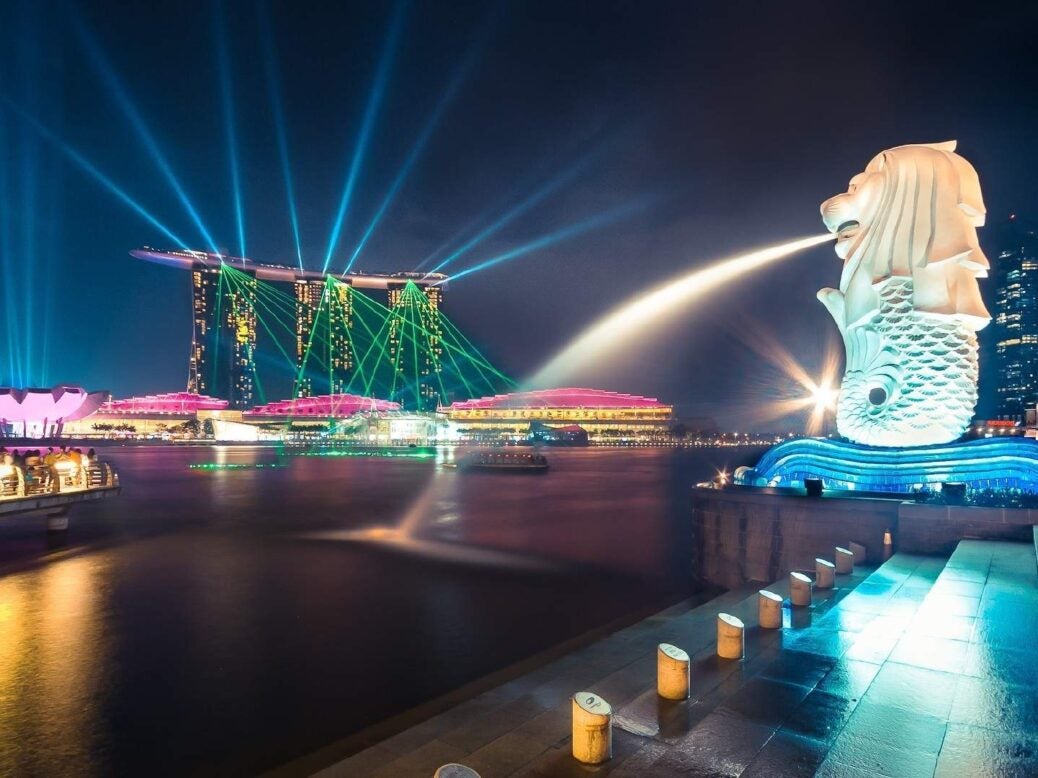
Despite recent bad press, the Lion City of Singapore is continuing its growth as a major financial centre, writes Rasika Sittamparam.
It has been a bittersweet period for Singapore. In March 2015 the nation mourned the loss of its founder-mentor, Lee Kuan Yew, over a seven-day period. Then, in August, citizens celebrated 50 years of independence and the legacy of Lee in a grand manner.
More recently the Lion City ended Hong Kong’s financial reign over the Asia-Pacific region. The Global Financial Centres Index (GFCI), an annual ranking which uses information from over 100 indices worldwide, ranked it as the third best international financial centre in the world, behind London and New York. But it still might be too early to celebrate, since public scrutiny of its presence in the Panama Papers and its alleged ties to Malaysia’s corruption scandal involving the 1MDB fund have cast shadows over its future.
Despite such doubts, the ambitious city is set to outshine its Asian competitors. With more than 200 banks, the region’s largest centre for commodity and foreign exchange trading has deep capital markets and could become UK investors’ next favourite financial hub in Asia after Hong Kong, as Mark Yeandle, the lead author of the GFCI, sees increasing trade from Europe and North America. Singapore is a ‘great place to be’ for those who are actively trading, Yeandle says: ‘Its business environment, regulatory environment, tax laws, infrastructure and the availability of skilled people are all very strong.’ With its strength in insurance and professional services, it is also upping its wealth and investment management and financial services offering, for which Hong Kong is more traditionally known.
Singapore might appeal to businesses, but the island republic is yet to become an attractive tax-neutral state for UK HNWs, Yeandle says. Mark Davies, a UK non-dom tax adviser and founder of Mark Davies & Associates, calls Singapore a ‘closed shop [with] relatively few providers of offshore services — a relatively recent industry’. UK HNWs do use its services when setting up investment vehicles that trade with the Chinese market, however.
But it’s not all rosy in the Garden City. The Panama Papers furore saw Singapore launch even tougher rules to protect its financial reputation, which could impact its tax neutrality even further. These draconian rules, including corporal punishment and a possible jail term for delaying the submission of company accounts, are making some HNWs uncomfortable.
‘It’s not the most pleasant jurisdiction to do business with,’ says Davies, adding that its double-tax treaty with the UK could facilitate ‘high-handed’ information exchange between the governments, raising concerns about the privacy of ultimate beneficial owners.
Davies is critical of its relationship with the UK tax authorities. He mentions a recent incident when the Singaporean tax authorities passed on more information than HMRC required about a client’s company. ‘They were actually helping [the Revenue] dig. It wasn’t their job, it’s not their tax — it’s actually none of their business.’
Tax concerns aside, the nation’s bid to collect data about every aspect of the lives of over five million Singaporeans via its centralised Smart Nation project reflects the government’s desire to increase surveillance, with its notorious reputation for state-policing and suppression of freedom of speech. The project, which aims to build a network of sensors and CCTV to capture aspects of everyday life, from humidity to movement, has also raised privacy and cyber-security concerns. However, the effort is commended by many, and is a natural expansion of its offering as an international financial centre, says Yeandle: ‘These days, you can’t be a very good financial centre without being pretty strong in innovation.’
Singapore’s push for digital economies could add $1 trillion to the ASEAN bloc over a ten-year period, according to research by global management consultancy A T Kearney and telecommunications group Axiata. The fintech growth of its banks, and the FCA’s recently launched ‘fintech bridge’ with the Monetary Authority of Singapore, could be a promising development.
Perhaps stringent rules, technological innovation and an open economy under the late prime minister’s iron grip were the main reasons behind Singapore’s success story. Peter Hargreaves, an enthusiastic billionaire Brexiteer, sees it as an example to follow. ‘Singapore was a mosquito-infested swamp with no natural resources,’ he has told The Guardian. ‘All they had were people with brains and hands, and they turned it into the best economy in the world.’






